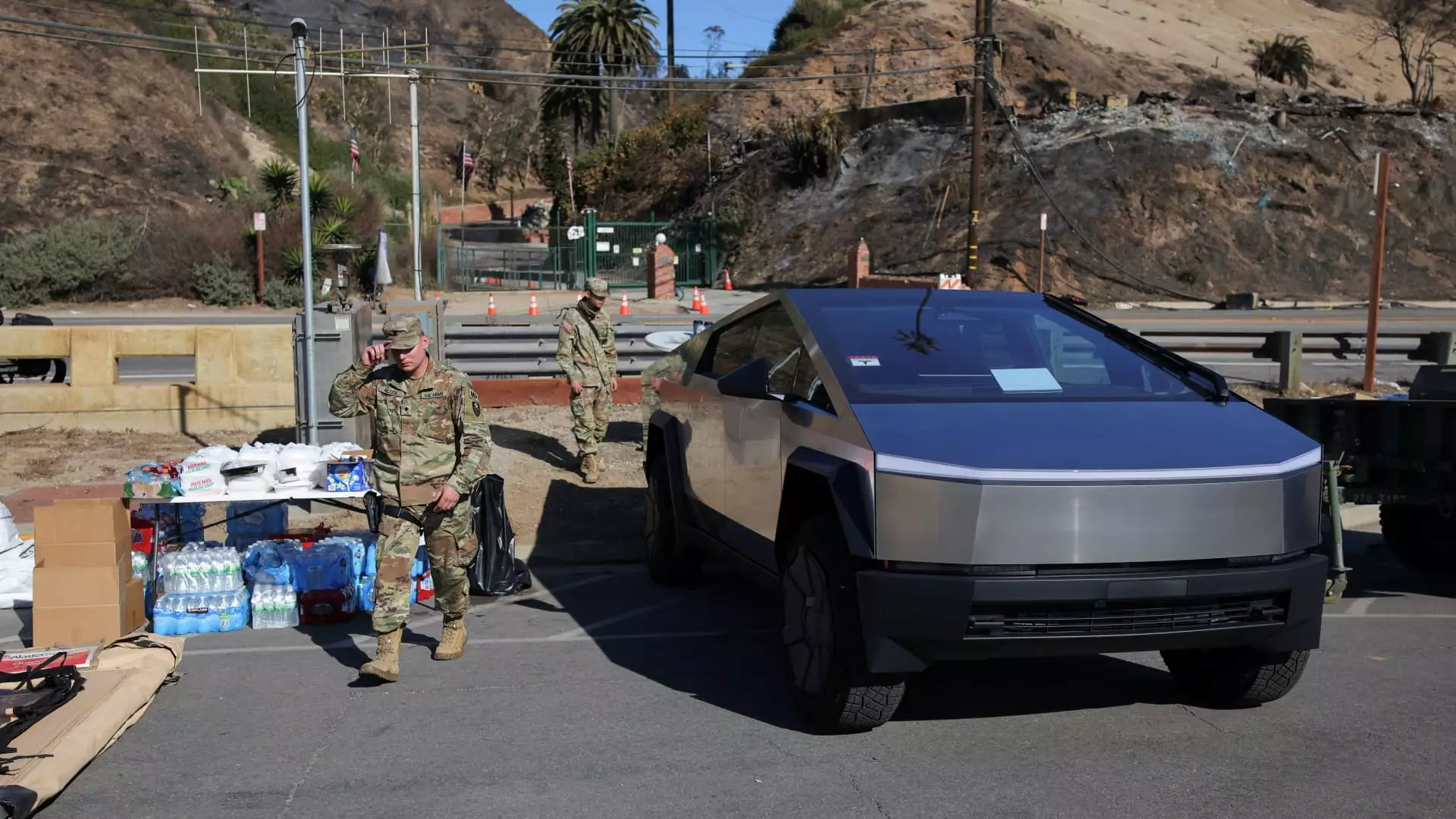In a strategic move reflective of evolving market dynamics, Tesla has begun implementing discounts on its Cybertruck inventory. Discounts can reach up to $1,600 for standard configurations, while demonstration units may see reductions as high as $2,600. This shift comes during a period when production at Tesla’s Austin facility has entered a decelerated phase, raising questions about the company’s production efficiency and inventory management strategies that are critical for sustained market competitiveness.
Initially unveiled by CEO Elon Musk in 2019 with a promise of a starting price around $40,000, the Cybertruck’s actual base price has crested closer to $80,000 as we progress through 2024. This substantial discrepancy has likely impacted consumer interest, especially as customers weigh the value proposition against competitive electric models emerging in the automotive market. Notably, despite the Cybertruck’s recent ascendency in sales, where it overtook competitors like the Ford Lightning F-150 as the fifth best-selling electric vehicle in the U.S., production challenges—coupled with a series of recalls—have stymied growth potential.
Tesla’s sales trajectory has not remained immune to the broader market disruptions affecting electric vehicles (EVs). The electric vehicle sector as a whole saw a record 1.3 million units sold in 2024, reflecting a 7.3% increase from the previous year. Yet, Tesla’s sales have notably contracted, leading to a decline of approximately 37,000 vehicles in comparison to 2023. This sharp downturn in Tesla’s sales contrasts with the growth of new entrants in the EV space, complicating its dominance and solidifying a more competitive landscape.
The Role of Recalls
The Cybertruck’s charm has been dulled by a slew of recalls, with Tesla recording six recall incidents in a single year due to critical defects such as faulty drive inverters. Such recurring issues not only pose risks to consumer safety but also undermine the brand’s reputation for innovation and reliability. This aspect of the Cybertruck could adversely affect customer loyalty, leading buyers to explore alternative models from brands that present fewer challenges.
In a recent acknowledgment of delivery delays, Musk personally reached out to California customers, indicating that the Cybertrucks are being repurposed as mobile base stations to support those affected by severe wildfires in Los Angeles. This proactive communication showcases Tesla’s commitment to leveraging its vehicles for community support, though it also raises questions about inventory management priorities. As the company navigates these operational challenges, its long-term viability in a rapidly evolving market will depend on its ability to streamline production processes while maintaining customer confidence.
Tesla’s Cybertruck saga serves as a poignant reminder of the multifaceted challenges faced by automakers in the electric vehicle domain. Discounts may provide short-term relief in driving sales, yet the overarching hurdles of production delays, customer dissatisfaction stemming from recalls, and increasing competition will require comprehensive strategic adjustments. Only time will reveal whether Tesla can reclaim its position as a market leader or if shifting consumer preferences will favor its newer rivals.

